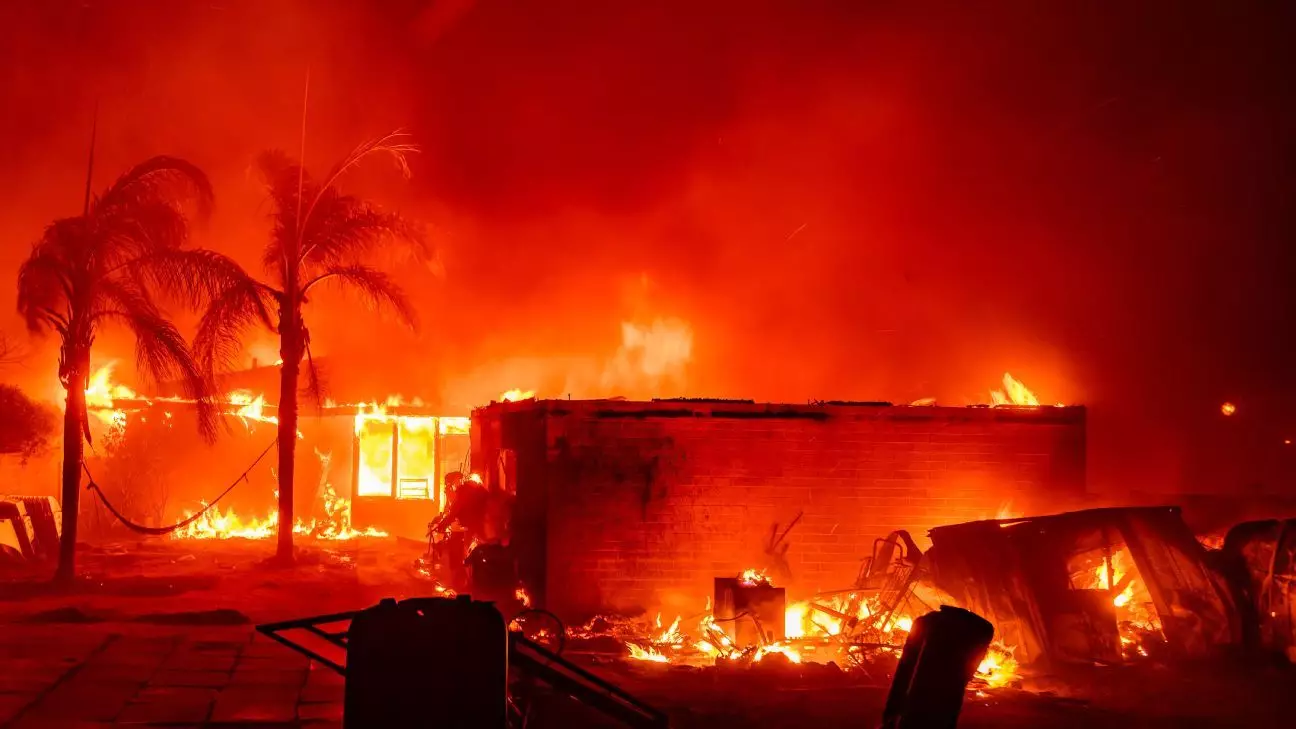Los Angeles is currently grappling with a devastating wave of wildfires that have forced thousands of residents to evacuate their homes and heavily impacted air quality across the region. The intensity and unpredictability of these fires have raised urgent concerns not only for public safety but also for local events, including major NFL games. As the Minnesota Vikings prepare to face the Los Angeles Rams in a critical wild-card playoff game at SoFi Stadium, the NFL has been proactive in devising contingency plans to ensure the game can proceed, even considering a potential relocation to Arizona should the need arise.
Wildfires in California have become a recurring nightmare, with their presence felt earlier in the year than usual. While the state typically expects its firefighting efforts to ramp up during the summer, increased temperatures and erratic weather patterns associated with climate change have contributed to longer wildfire seasons. The challenges are compounded this January, as the recent fires have already resulted in loss of life and significant injuries.
In a public statement released midweek, the NFL acknowledged their concerns regarding the potential impact of the wildfires on the impending match. In the statement, they detailed a well-thought-out contingency plan that involves the possibility of moving the game to State Farm Stadium in Glendale, Arizona, home to the Arizona Cardinals, should the conditions at SoFi Stadium become untenable. This move is not without precedence; the league has previously had to reschedule a game due to wildfire concerns, as seen in 2003, signaling the seriousness of the situation.
The Rams are closely monitoring the evolving circumstances surrounding the wildfires. Despite the team’s headquarters being situated about 13 miles from the most affected areas, they have not reported any direct implications for their players or support staff—at least for now. The Rams continue to maintain their training schedule, although they are aware of the risks presented by the dynamics of air quality and surrounding environmental conditions.
Air quality in Los Angeles has fluctuated dramatically amidst the wildfires, with some areas experiencing AQI (Air Quality Index) levels reaching well above 300, a threshold categorized as “hazardous.” The conditions have prompted the Chargers, who also have a playoff game approaching, to adjust their practice routines accordingly. The team has made a concerted effort to limit outdoor exposure for their players, highlighting the persistent health risks tied to the smoke and ash clouding the region.
Coaches and team officials are enhancing their focus on safety without sacrificing preparation for upcoming games. For instance, Chargers head coach Jim Harbaugh adapted the practice structure to mitigate exposure to the unhealthy air quality, showcasing the dual challenge of safeguarding player health while ensuring adequate training for the playoff season.
The impact of the wildfires extends beyond the football field. Players have shown their support for the local community, with star receiver Cooper Kupp expressing solidarity with those affected through social media channels. The Chargers have also unveiled a significant initiative, pledging $200,000 in funds to support organizations such as the American Red Cross and local animal rescue groups sheltering affected pets. This movement reflects a collective understanding of the community’s needs during such a turbulent time.
As the Los Angeles Fire Department continues to mobilize resources, with firefighters risking their safety to combat the flames, an undeniable sense of collaboration and camaraderie emerges amid adversity. The calls for off-duty firefighters to join the battle against the blazes reveal the urgent human element of this crisis, highlighting the lives being profoundly impacted beyond the immediate dangers of the wildfires.
The evolving situation in Los Angeles demands a holistic approach, one that encompasses not only immediate responses to environmental crises but also considers longer-term implications tied to climate change. With recent studies indicating that wildfires are likely to occur with increasing frequency and severity, residents face the daunting reality of an uncertain future.
As stakeholders in the NFL and the greater Los Angeles community navigate this landscape, it’s crucial to remember the human lives affected by these disasters. Whether it’s modifying game schedules, changing practice routines, or broadening outreach to help those in need, the response to the wildfires requires a united front. Through these challenges, there will be a continued examination of how sports intersect with significant societal issues, forging a pathway toward resilience in the face of adversity.

Leave a Reply